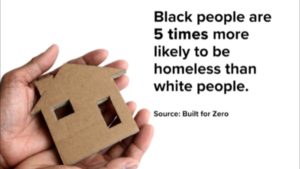Peruvian authorities initially tried to minimize revelations of violence and sexual abuse at Indigenous public schools, but activists and civil society are not letting them cover it up
June 27, 2024 | Ricardo Perez and Raphael Hoetmer | Eye on the Amazon
In recent weeks, the Awajún and Wampís Women’s Council made a shocking public denunciation of 524 cases of rape and abuse of children who attended public schools since 2010.
Peruvian government authorities responded with indifference, as they typically do when presented with evidence of abuse of Indigenous people. A prevailing attitude of impunity is also deeply ingrained in these institutions, and they are resistant to any calls for change or challenges to their authority.
Despite these difficulties, courageous Indigenous women have been stepping forward to denounce sexual and gender-based violence in their communities, and they are refusing to accept indifference or inaction. In an echo of the #MeToo movement, their protests have provoked a wave of indignation throughout Peru.
An epidemic of sexual violence
After years of work documenting these cases, Rosemary Pioc, president of the Awajún and Wampís Women’s Council, finally broke through into Peru’s mainstream media this month when she revealed an appalling statistic: In only 116 of the 524 reported cases of abuse were the accused teachers dismissed. Many of the charges were discarded simply because too much time had passed, a direct result of the authorities’ failure to act for so many years.
Now that these revelations have been exposed and provoked an outcry in the Peruvian media, the minister of education was forced to respond, and in his first comments he attributed the abuses to unspecified “cultural practices,” essentially blaming the victims. This response not only reflects the institutional racism that continues to poison public policies towards Indigenous peoples, but also the lack of political will to investigate widespread sexual violence in Amazonian educational institutions and put an end to it.
Rosemary’s response was fierce:
“The minister’s statements are sure to be celebrated by rapists in the area. This is about ending impunity. Even now I am receiving calls threatening me and asking me to restrain myself. I will not stop. I will continue to denounce this at a national and international level.”
Confronting systemic impunity
Indigenous organizations, activists, and civil society across the country responded by issuing dozens of statements demanding the resignation of the minister of education and pointing out the real problem behind it all: the authorities who are supposed to protect Indigenous children are indifferent to their wellbeing. They use bureaucratic and linguistic barriers to protect abusers and punish Indigenous women who dare to raise their voices. And they are confident that they can do so with impunity.
In the wake of the scandal, Perú’s prime minister was finally forced to announce an investigation, and more than 100 teachers have now been suspended in Condorcanqui Province. But far more political action is still lacking, as the Condorcanqui abuses are only the tip of the iceberg of the persistent violence and discrimination against Indigenous women and children in the country.
The current ministers of health, education, and women and vulnerable populations didn’t even bother to show up to the extraordinary session on the issue called by the Congressional Commission of Indigenous Peoples, where Indigenous organizations demanded explanations and concrete commitments.
Indigenous women lead the way forward
Stopping historical patterns of sexual violence and patriarchal discrimination against Amazonian children and women is a daunting challenge, which courageous women like Rosemary Pioc and many other leaders have sworn to achieve.
Olivia Bisa, the first woman president of the Chapra nation, is another leading voice and force in this struggle in Peru. Olivia confirms that the Chapra and other peoples face similar situations in their communities:
“Teachers should be suspended and moved away from the schools immediately when an accusation is made. Unfortunately, many directors of the Educational Service just transfer them to other schools and communities.”
Olivia’s fight for gender justice has been lifelong, and her own story is an inspiring example. She escaped a traditional arranged marriage at a very young age so that she could attend high school and later college. Chapra girls have traditionally been denied higher education, and until recently they did not participate in assemblies or assume leadership roles. Officially, women cannot even inherit land unless they are married.
However, women are organizing and this is changing. In addition to Olivia, another woman was also elected as the first female Kuraka (“President”) of a community. During the assembly that we attended, multiple women – including Olivia’s mother – raised their voices to demand unity and commitment from male leaders.
During her time away at school, Olivia’s connection to her territory and her people was never broken. She became a sociologist and is currently studying law, and she has vowed to use her knowledge and skills to lead her people, following in her father’s footsteps. Not surprisingly, strengthening women’s rights is one of Olivia’s priorities during her presidency.
Olivia understands that more structural changes are needed to strengthen Indigenous women´s position in society and their communities:
“Changing the customary governing rules of our Nation is also very important because the bylaws that govern us today were made years ago, when there was still very little participation of women. That is why many of our proposals are not taken up. For example, what do we do when there are teenage pregnancies, or when there is family violence? There are western laws for this, but the Chapra nation must have clear rules to attend these cases and take them to the western justice system when necessary.”
Long-term support for women’s initiatives is critical
Like Rosemary and Olivia, many other strong women throughout the Indigenous nations of the Amazon are organizing, claiming their rights, and taking steps to strengthen their position in their communities, and in Peruvian society. The threats Olivia has faced over the last year show that this comes at a high price as well.
Nevertheless, women continue speaking out for their rights and organizing to confront threats to their communities. They cannot count on the government to protect them when they are stigmatized and attacked for this. In Olivia´s case, five United Nations rapporteurs just released a statement expressing their concern about her situation to the Peruvian government and demanding that “all measures needed to protect her rights and liberty should be taken.”
To amplify women’s leadership, Olivia says that we need:
“An urgent strategy for us is to establish leadership programs for women. In other Indigenous nations there are women leaders who have gone through different leadership programs, and this has been successful. In addition, Chapra women have a very important function, which is to help train the next generation of leaders in the organization. This role has been made invisible, but it is fundamental.”
Indigenous women are creating better futures for themselves and their peoples. At Amazon Watch, we are committed to supporting Indigenous Women Defenders like Olivia to ensure she has the resources she needs to be an effective leader and to defend the rights and territories of the Chapra people, including women and children.




